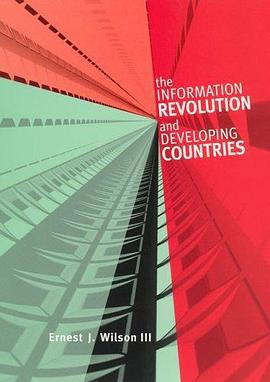

In this book Ernest Wilson provides a clear, nuanced analysis of the major transformations resulting from the global information revolution. He shows that the information revolution is rooted in societal dynamics, political interests, and social structure. Using the innovative Strategic ReStructuring (SRS) model, he uncovers links between the big changes taking place around the world and the local initiatives of individual information activists, especially in developing countries. Indeed, Wilson shows that many of the structural changes of the information revolution, such as shifts from public to private ownership or from monopoly to competition, are driven by activists struggling individually and collectively to overcome local apathy and entrenched opposition to reform.
Wilson applies his SRS model to the politics of Internet expansion in Brazil, China, and Ghana to illustrate the real-world challenges facing policy-makers and practitioners. Examples of such challenges include starting Internet companies, reforming regulatory laws, and formulating NGO strategies for dealing with the digital divide. Wilson identifies the tremendous possibilities for innovation and advancement in developing countries while acknowledging the structural, institutional, and cultural constraints that work against their realization.
具体描述
读后感
评分
评分
评分
评分
用户评价
相关图书
本站所有内容均为互联网搜索引擎提供的公开搜索信息,本站不存储任何数据与内容,任何内容与数据均与本站无关,如有需要请联系相关搜索引擎包括但不限于百度,google,bing,sogou 等
© 2025 book.wenda123.org All Rights Reserved. 图书目录大全 版权所有




















